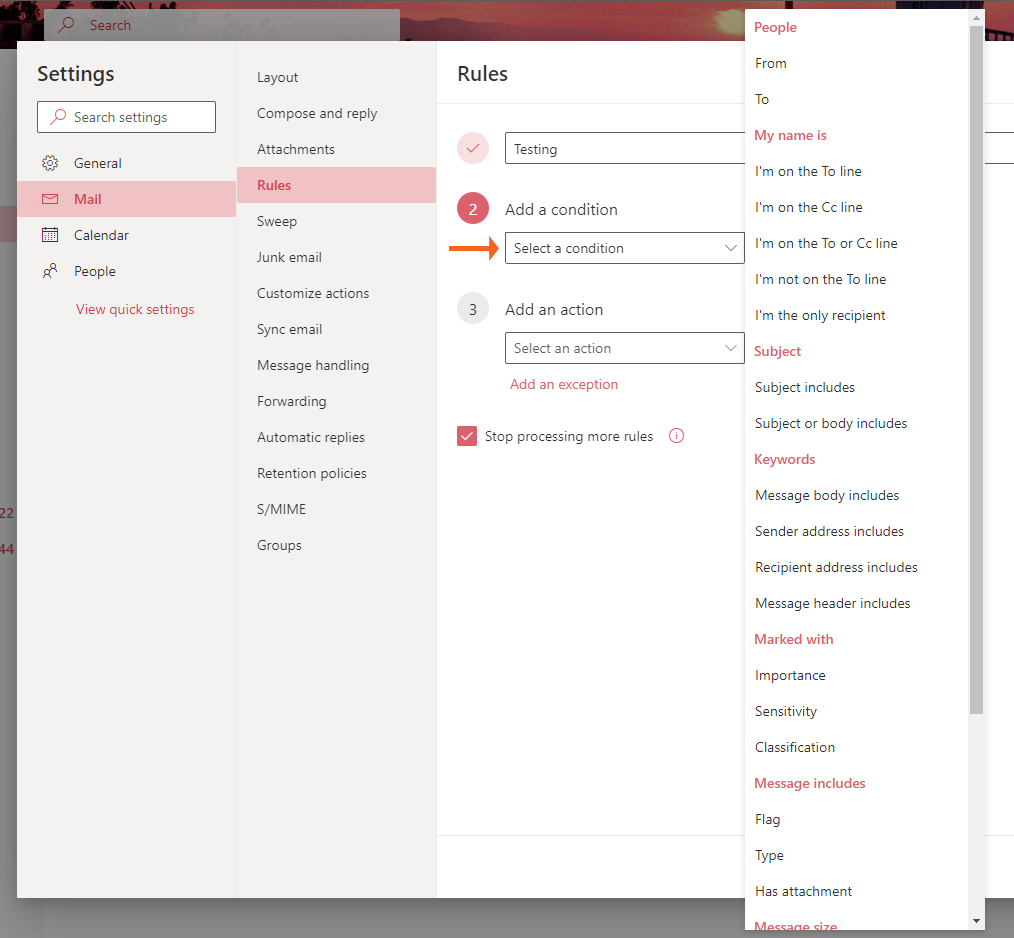


Prefix wildcard searches (*cat) or substring wildcard searches (*cat*) aren’t supported. You can use only suffix wildcard searches-for example, cat* or set*. When searching a recipient property, such as To, From, Cc, or Recipients, you can use an SMTP address, alias, or display name to denote a recipient.For example, from:"Jerri Frye"subject:reorganization returns all messages sent by Jerri Frye that contain the word reorganization in the subject line. A space between two keywords or two property:value expressions is the same as using AND.To search for messages sent to JerriFrye, enter to:JerriFrye. For example, to: JerriFrye searches for "JerriFrye" as a keyword, rather than for messages that were sent to JerriFrye. If there is a space, your intended value will just be full-text searched. When searching on a property:value expression, don't put a space after the colon.For example, cat and CAT return the same results. Keyword searches are not case sensitive.Use these tips and tricks to define more precise searches: For example, blue hasattachment:yes returns only emails containing the word "blue" that include attachments.Ī search for Attachment name or file type.Ī search for HasAttachment:no returns only emails without attachments.Ī search for IsFlagged:yes returns only emails that are flagged.Ī search for IsFlagged:no returns only emails that are not flagged. To further specify the emails you want to search, use words or names from the mail in conjunction with the search keyword. You can use the same search terms as for Sent.Ī search for HasAttachment:yes returns only emails with attachments. Important: Date searches must be entered in month/day/year format: MM/DD/YYYY.

You can search for the day of the week or month of the year. You can also search for relative dates: today, tomorrow, yesterday, this week, next month, last week, past month.

You can search for a specific date or a range of dates separated by two dots (.).


 0 kommentar(er)
0 kommentar(er)
